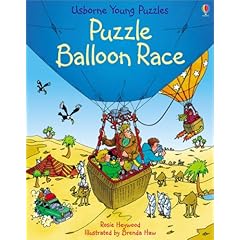I'm currently reading
this book, by Oliver James. I am enjoying it immensely.
From the blurb...
There is currently an epidemic of “affluenza” throughout the world — an obsessive, envious keeping-up-with-the-Joneses mentality that has resulted in huge increases in depression and anxiety among millions. Over a nine-month period, author and psychologist Oliver James travelled around the world to try and find out why.
Basically the premise is that 'Selfish Capitalist' societies (of which America is the prime example - certainly in the way it portrays itself via the media etc), lead to a massive shift in the population's behaviour and values. The more 'selfish capitalist' the nation, the more likely its people are to neglect their
needs in order to chase after their
wants - without even being aware that that is what they are doing. James contends that this societal shift is what leads to those countries' very high rates of 'mental distress' (a term he prefers to mental illness - since it he believes it to be in many cases a normal response to an abnormal society/situation).
The
needs he identifies are as follows,
We need to feel secure, emotionally and materially. We need to feel part of a community, to give and receive from family, neighbours and friends. We need to feel competent, autonomous and authentic, masters of our destinies to some degree.
And we trade those in so we can work for longer to get more money to buy more stuff, or work harder to get more qualified so other people will congratulate us or so we can finally be good enough for our parents/ourselves, or work harder so we can buy thinness or blondeness or other means of being sexually attractive (and therefore 'valuable'), or so we can get a bigger house, or a conservatory or a second house or a shinier car or whatever else we 'need' to have.
Sometimes we even kid ourselves that we can somehow achieve emotional and material security, or those other
needs, by buying more stuff (true to a point - but untrue beyond basic subsistence levels), or being prettier (pretty according to whom? and of course there will always be someone prettier), or even that by working 8am to 8pm six days a week for someone else that we are somehow masters of our destinies and achieving autonomy.
He asserts that the long term effect of having those needs unmet, and of working harder and harder at misguided efforts to meet them, coupled with the pernicious continual mantra of advertising (what you have/are/do is not good enough - you need more), is mental distress - depression, anxiety, psychosis etc.
An interview with him, from about the time the book was published is
here, and an extract from the book is
here.
He also discusses the "vaccines" to the "virus" of affluenza that he observed in various places around the world. Some really thought-provoking observations.
The section of the book dealing with academic performance and 'virus values' rang very true for me - It's entitled "Educate your kids (don't brainwash them). It reminded me of an article I read a month or so ago, by Alfie Kohn, "
How not to get into college".
Having suffered burnout myself after being a high achiever at school and in first year, I can attest to the pointlessness of sacrificing your health for better grades. I put enormous pressure on myself to succeed and had had no practice at 'failure'. Um, not getting into a highly competitive entry course, but still having an A- average counted as 'failure' for me - I really did not know how to handle this. I got a lot more practice in 2nd year (my first 'E'!).
I can actually remember very little of my second year at varsity. I recall looking through my 2nd year notes a year later while studying for my 3rd year exams and being astonished - I had absolutely no recollection of having written them, or even covering that material in lectures - I checked the name on the book and even got out other notes to compare the handwriting. They were mine. I think my body was attending the lectures (it certainly took good notes), but my mind was shut down.
Burnout, depression and the occassionally paranoid anxiety attack (anyone else crawled under their desk and just not wanted to get out ever?). All because my whole self-image was utterly pinned to getting into medical school - to being one of 'the top students' - to getting very high grades. Which are all comparative things - none of those had anything to do with my actual worth - it was my 'worth'
compared to other people's. Not a recipe for good mental health. At some point I needed to let go of how other people viewed me, and stop measuring myself by the feedback I received from them, and build up my sense of self from the inside out. That was an extremely hard process - one I'm not sure I've finished yet.
That's one of the things Oliver James gives as a 'vaccine' to the afluenza 'virus' - being 'intrinsically motivated' is vitally important. Even people with 'virus goals' (e.g. top promotion) are generally protected from mental distress if their motivations are intrinsic rather than external (e.g really enjoying your job for its own sake).
I'm about 2/3rds of the way through the book and I recommend it so far. Even if you disagree with him it provides some interesting food for thought.
Read more...









